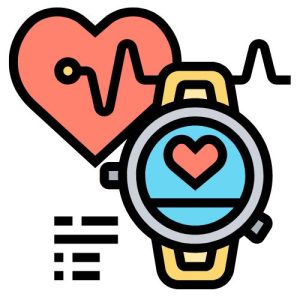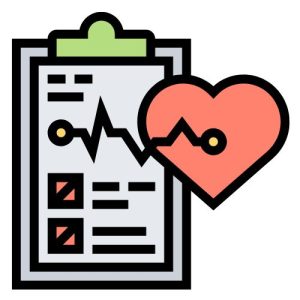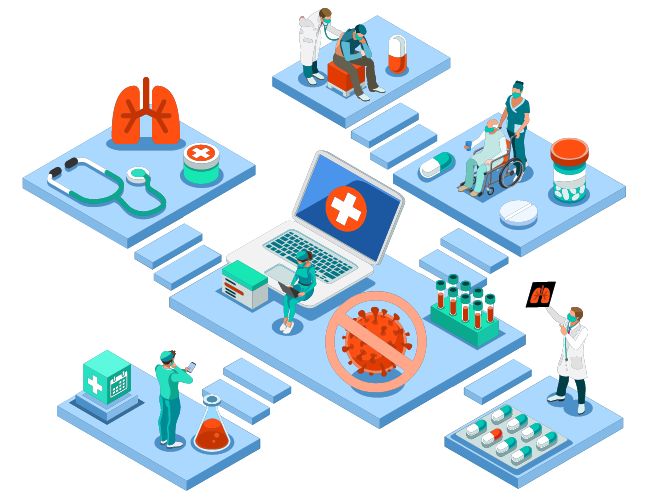How Can the Healthcare Industry Leverage Blockchain Technology?

Blockchain in healthcare
The healthcare industry is constantly looking for ways to innovate and improve patient care. Blockchain technology is one of the most promising solutions for the sector.
This article will explore the potential of blockchain technology in healthcare. How can blockchain technology improve the healthcare system and help to improve patient care?
Use cases for blockchain technology in healthcare
Blockchain technology has the potential to transform the healthcare industry. Here are some of the major use cases in healthcare:
1. Data Security
Blockchain technology offers an unprecedented level of data security, as all transactions are encrypted and stored on the decentralized ledger of records. This makes blockchain technology an ideal solution for storing and managing sensitive medical records because it significantly reduces the risk of data breaches, fraud, and other malicious activities.
2. Improved Patient Care

Blockchain technology can help healthcare providers to improve patient care by providing real-time access to patient information.
By leveraging the power of blockchain technology, healthcare providers can quickly and securely share patient data with other healthcare professionals. But blockchain can even allow patients to easily view and manage their own medical records.
3. Streamlined Clinical Trials
Blockchain technology can also be used to streamline clinical trials by enabling the secure sharing of clinical trial data between participants. Through blockchain technology, clinical trial participants can securely share their data with each other, which could ultimately lead to faster and more accurate clinical trial results.
4. Supply Chain Management
Blockchain technology can create a secure, immutable record of all transactions in the healthcare supply chain. This could help to ensure that only authorized personnel have access to certain drugs and medical devices, as well as reduce the risk of fraudulent activities.
5. Improved Payment Systems
Lastly, blockchain technology can be used to improve payment systems within the healthcare industry. By creating a secure, transparent platform for payments, healthcare providers can reduce the risk of fraud and increase efficiency in the payment process. This doesn’t only apply to healthcare but it’s a business application of blockchain as well.
Benefits of blockchain technology for healthcare
The use of blockchain technology in healthcare can bring many spinoff benefits from blockchain use cases, including improved faster transactions, reduced costs, and better patient engagement.
1. Transaction Speed
The speed at which transactions take place is another benefit of using blockchain technology. By using distributed ledger technology, healthcare organizations can quickly and securely process payments and other transactions. This can help reduce the time it takes to process payments and make it easier for patients to access healthcare services.
2. Patient Engagement

Finally, blockchain technology can also help improve patient engagement. By allowing healthcare providers to securely store and share patient health information, patients can access their medical records more easily and quickly.
This can help increase patient satisfaction and give them more control over their healthcare decisions. Additionally, blockchain technology can enable healthcare providers to quickly and securely communicate with patients and provide more personalized care.
3. Cost Savings
Cost savings are another potential benefit of using blockchain technology. By eliminating the need for third-party intermediaries, such as banks or payment processors, healthcare organizations can save money on transaction fees. Additionally, blockchain technology can be used to automate certain administrative tasks, such as claims processing and billing, which can reduce operational costs.
Challenges in implementing blockchain technology in healthcare
The implementation of blockchain technology in healthcare presents several challenges:

First, there is the challenge of obtaining widespread acceptance and adoption of the technology within the healthcare system. Healthcare organizations are often hesitant to adopt new technologies due to privacy concerns, regulatory compliance, and cost.
Additionally, blockchain technology presents a unique challenge in that it requires a high degree of trust between participants in order for it to be successfully implemented. This means that healthcare organizations must be willing to share sensitive patient data with other organizations in order to make use of the technology.
Another challenge associated with implementing blockchain technology in healthcare centers around scalability. As more healthcare organizations begin to adopt the technology, the amount of data that must be stored and processed increases exponentially. This can lead to scalability issues as the network grows, which could lead to slower transaction speeds and decreased performance.
Finally, healthcare organizations must also consider the security of their data when implementing blockchain technology. As with any technology, there are potential security risks associated with blockchain that must be addressed. These risks include the threat of hackers, privacy breaches, and malicious actors attempting to manipulate the data. By taking steps to ensure the security of data, healthcare organizations can help ensure that their data remains secure and protected.
Conclusion
By leveraging the power of distributed ledgers and secure transactions, blockchain technology has the potential to add value to many aspects of healthcare. Not only can it improve patient data security, but it can also streamline record-keeping and reduce administrative costs.
Despite the many benefits, there are also challenges in implementing a blockchain architecture in healthcare. This is just one of the applications of blockchain. What do you think? We’d love to hear from you in the comment section below.

Related Blockchain
Understanding Blockchain Technology: An Introduction to the Basics
What Is a Smart Contract in Blockchain
What is Distributed Ledger Technology (DLT)?
Exploring Blockchain Careers: How To Get Your Foot In The Door
25 Applications and Uses of Blockchain Technology
Exploring the Benefits of Blockchain Technology and Its Impact on Businesses
How Can the Healthcare Industry Leverage Blockchain Technology?